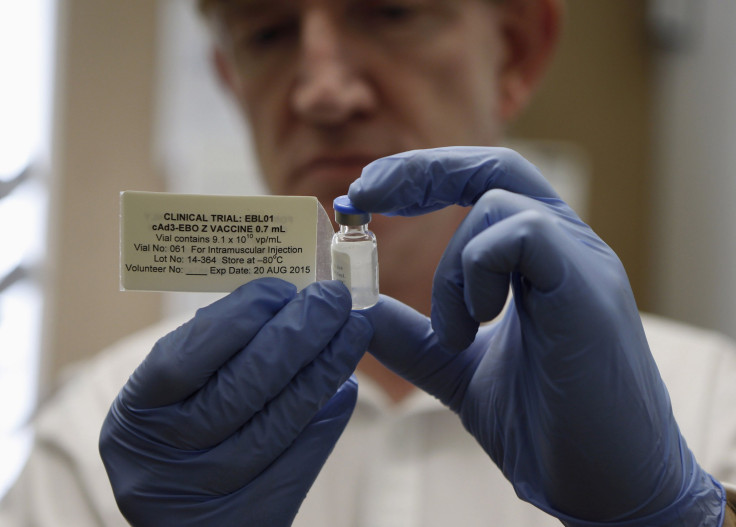Ebola Virus Vaccines: Profectus Receives $17.1M For Experimental Drug Research

The U.S. Army and the National Institutes of Health (NIH) are contributing a combined $17.1 million to Baltimore biotech firm Profectus BioSciences, to speed research of the company’s Ebola vaccine, Vesiculo Vax. The grants make up a small portion of U.S. government funds being marshalled to fight Ebola, as the world’s worst outbreak continues.
Studies show that just one dose of Vesiculo Vax can be enough to protect nonhuman primates against Ebola and Marburg viruses, and the new funds are meant to help Profectus find out whether the drug is safe for humans, and later conduct human trials.
More than 4,500 people have already died in the current outbreak sweeping through Liberia, Guinea and Sierra Leone, and health experts estimate that the outbreak will only get worse. There have been three confirmed cases and one death in the United States.
“Advancing this vaccine into human studies is a top priority for Profectus, and we remain committed to moving this program into clinical evaluation as rapidly as possible,” John Eldridge, Profectus chief scientific officer, said in a Wednesday statement.
The new money comes in two chunks. A one-year contract with the Biomedical Advanced Research and Development Authority (BARDA) a division of the NIH, is worth $5.8 million, with a possible extension to $8.6 million, while the three-year grant from the U.S. Army is worth $8.5 million.
Eldridge said Wednesday that the company is grateful the Army recognized the potential of its vaccine “to counter biowarfare threats,” and that Profectus is “confident it will also have application with regard to protecting civilians and military personnel against highly lethal emerging infectious diseases.”
The vast majority of Ebola research in North America has been funded in part by the U.S. government, which stepped up anti-bioterrorism efforts after a high-profile anthrax incident more than a decade ago.
Profectus, based in Baltimore, has received a total of $27.9 million to develop the vaccine from various government agencies since 2012, including $10.8 million from the National Institute of Allergy and Infectious Diseases, $8.5 million from the Department of Defense and $9.6 million from the U.S. Department of Health and Human Services.
There are many other experimental drugs currently in the works. GlaxoSmithKline’s medicine could be ready by the end of 2014. NewLink Genetics, based in Ames, Iowa, received a $1 million contract in August from the U.S. Defense Threat Reduction Agency for research on its vaccine, licensed from the Public Health Agency of Canada. The Vancouver-based Tekmira Pharmaceuticals has received more than $140 million in funding to research their drug, TKM-Ebola, which has emerged as one of the top candidates. The U.S. government recently asked companies around the country for proposals on how they could produce ZMapp, the Ebola treatment from San Diego, California-based Mapp Pharmaceuticals that physicians used on some U.S. patients before supplies ran out.
© Copyright IBTimes 2024. All rights reserved.






















